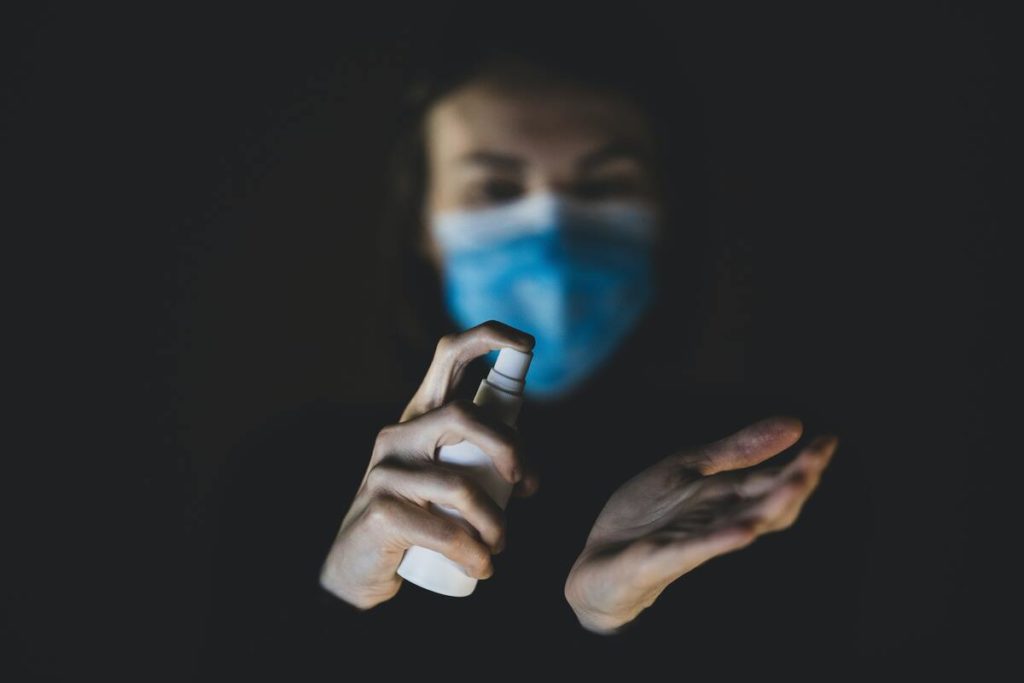The public had no idea how vulnerable they are to serious illnesses every single day. Although there have been studies that prove that public spaces are teeming with germs, people were not convinced. It was only until the arrival of a new virus that causes a respiratory disease called COVID-19 did the threat become real to the entire population.
At the beginning of the pandemic, public health experts emphasized the importance of handwashing or, if running water is not available, the application of alcohol-based sanitizers. For a long time, stores ran out of hand sanitizers that even private companies such as Coca-Cola and Louis Vuitton were using their facilities to produce hand sanitizers for healthcare workers and the public
Back then, it was believed that COVID-19 spreads through fomites: infected droplets landing on common-touch surfaces. It enters the body by touching an infected surface and then touching the eyes, nose, and mouth. So, people were avoiding or disinfecting doorknobs, elevator buttons, their groceries, and the parcels they received.
Eventually, various studies made clear that COVID-19 is airborne and, therefore, the method by which people should protect themselves has changed. Wearing a face covering became mandatory, and recommendations for social distancing became stronger. Moreover, more emphasis was given to the importance of ventilation.
Yet, there are habits that were developed during the pandemic that surely will stick around even after COVID-19 has been eliminated.
New Habits Die Hard
The pandemic changed the public. Now, more people are aware of the threats of organisms not even visible to the naked eye. It caused new cases and exacerbated existing health anxiety and obsessive-compulsive disorders among the population.
But, even those who do not normally worry about germs, illnesses, and filth may become more careful now.
A survey conducted last year in the United States revealed that only 26 percent of American consumers plan to go back to their old cleaning routines after the pandemic. The rest plan to continue being thorough with how they clean their homes and household items.
In fact, as proof, Procter & Gamble revealed growth of 9 percent in the first quarter of 2021. The company said that the increase was driven by the demand for fabric and home care products.
Yes, people are still buying cleaning rags in bulk and equipping their homes with disinfectants. Even if the situation around the world, including the United Kingdom, has gotten better, people are still protecting themselves by cleaning their homes regularly and thoroughly.
The pandemic likely will instill in people the importance of disinfection and hygiene to prevent illnesses. COVID-19 is not the only threat out there.

No Shoes Allowed, and Other Rules
The pandemic is also making changes to how people enter a home. Many households now have some sort of sanitation station right at the front door where one can get new masks or throw away a used one, where the disinfectants are kept to be used upon arrival, and where objects like keys and coins are sanitized.
It was not what most people are used to, but knowing what they know now, it will likely become a key feature in every home going forward.
Many households have also started prohibiting the use of outside shoes indoors. Taking off one’s footwear before entering the house was once a quirk that is associated with Asia. However, Asians were right. Footwear used to walk outdoors is dirty. Shoes will only bring disease-causing germs into the house.
This was already proven by previous research. In the paper published in 2015 in the journal Microbiome, the researchers analyzed the microbial environment in shoes after walking in outdoor settings. They found that microbes on surfaces stick to shoes and spread on every surface they come in contact with. Every step picks up and then leaves different types of microbes behind.
Evolving Hygiene
Aside from household cleaning, the pandemic is also leaving a lasting positive impact on hygiene. Last year, public health experts taught us how to properly wash our hands.
There was a campaign to remind people to scrub their hands with soap and water for at least 20 seconds. There were signs in bathrooms, videos on social media, commercials on television, and articles and slogans to make people wash their hands thoroughly when they come home after going out or as soon as they arrive at their destination.
The use of sanitizers and wipes was also encouraged in between washing to kill germs that they have picked up from touching common traffic surfaces.
The pandemic changed people and all aspects of life. Many of the changes will be carried and maintained in a world after COVID-19.

















